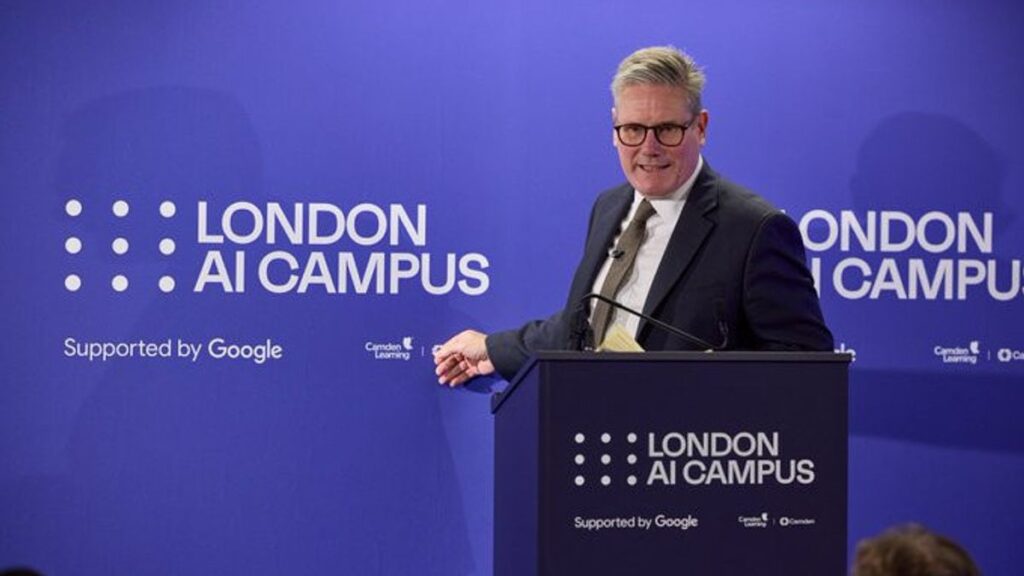British Prime Minister Keir Starmer is set to outline an ambitious vision to position the United Kingdom as a global leader in artificial intelligence (AI). In a landmark speech in London, Starmer will emphasize AI’s transformative potential, and highlighting plans to accelerate data centre development, foster technology-focused education, and boost economic productivity.
With the government projecting that full AI adoption could increase productivity by 1.5% annually—equivalent to an additional £47 billion ($57 billion) per year over the next decade—the stakes are high. “Our plan will make Britain the world leader,” Starmer stated in a release by the Department for Science, Innovation, and Technology.
The government has pledged to adopt all 50 recommendations from the “AI Opportunities Action Plan” authored by venture capitalist Matt Clifford. Key initiatives include streamlining planning permissions for data centres and ensuring their energy needs are prioritized.
The first of these high-tech zones is slated for Culham, Oxfordshire, a region already renowned for its cutting-edge research as the home of Britain’s Atomic Energy Authority. These data centres will underpin AI development, supporting industries ranging from healthcare to education.
AI’s Transformative Power Across Sectors
Starmer is expected to highlight AI’s far-reaching impact on everyday life. From expediting planning consultations to reducing administrative burdens for teachers, the technology promises to streamline processes and free up resources. For small businesses, AI could simplify operations, allowing entrepreneurs to focus on growth.
“And in a world of fierce competition, we cannot stand by,” Starmer will declare. “We must move fast and take action.” While the UK ranks as the third-largest AI market globally—trailing only the United States and China—its leadership aspirations face challenges. Recent economic turbulence, including the Labour government’s highest tax-raising budget since 1993, has dented business confidence. Additionally, the Bank of England reported stagnant economic growth in the last quarter, underscoring the urgency of revitalizing key sectors.
Starmer’s push for AI dominance aims to counterbalance these economic concerns, focusing on fostering innovation and attracting investment. However, balancing rapid technological advancement with ethical and regulatory considerations will be critical to maintaining public trust and ensuring long-term success.
Competing on the Global Stage
As nations worldwide vie to establish themselves as AI hubs, Britain’s strategy hinges on swift implementation and sustained commitment. By prioritizing AI education and infrastructure, Starmer aims to secure the UK’s place at the forefront of this technological revolution.
Countries such as the U.S. and China have already set the pace in AI development, leveraging vast resources and substantial investments. To compete, Britain must navigate a fine line between incentivizing innovation and imposing necessary restrictions to address concerns such as data privacy, algorithmic bias, and potential job displacement.
The UK’s AI strategy, as outlined by Starmer, represents a bold step toward harnessing the technology’s potential to drive economic growth and societal progress. By investing in infrastructure, education, and policy reform, the government aims to create a thriving ecosystem that benefits businesses, workers, and citizens alike.
As the global race for AI supremacy intensifies, Britain’s success will depend on its ability to implement these plans effectively and adapt to an ever-changing technological landscape.



